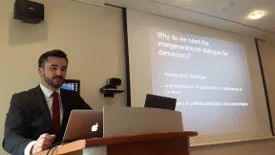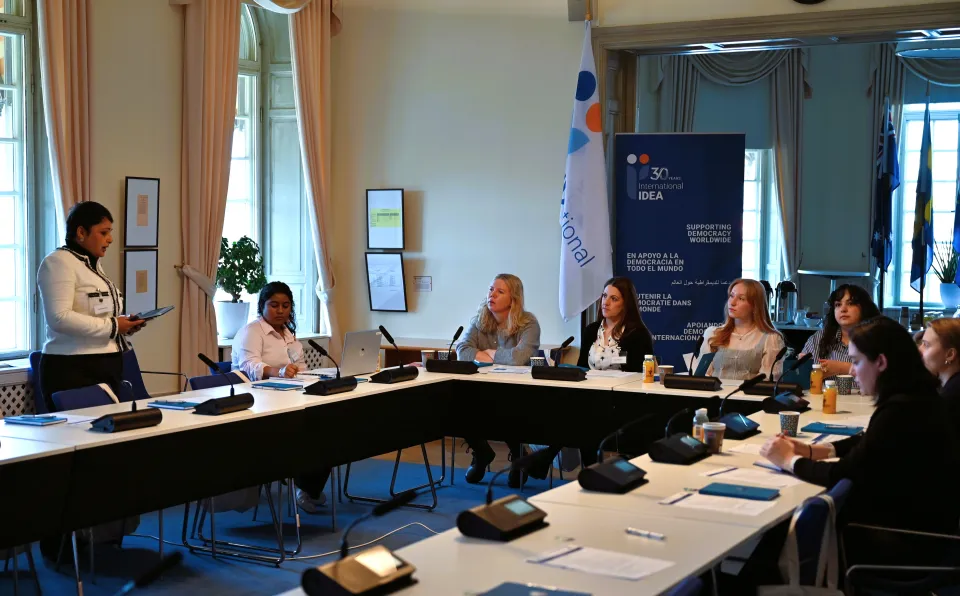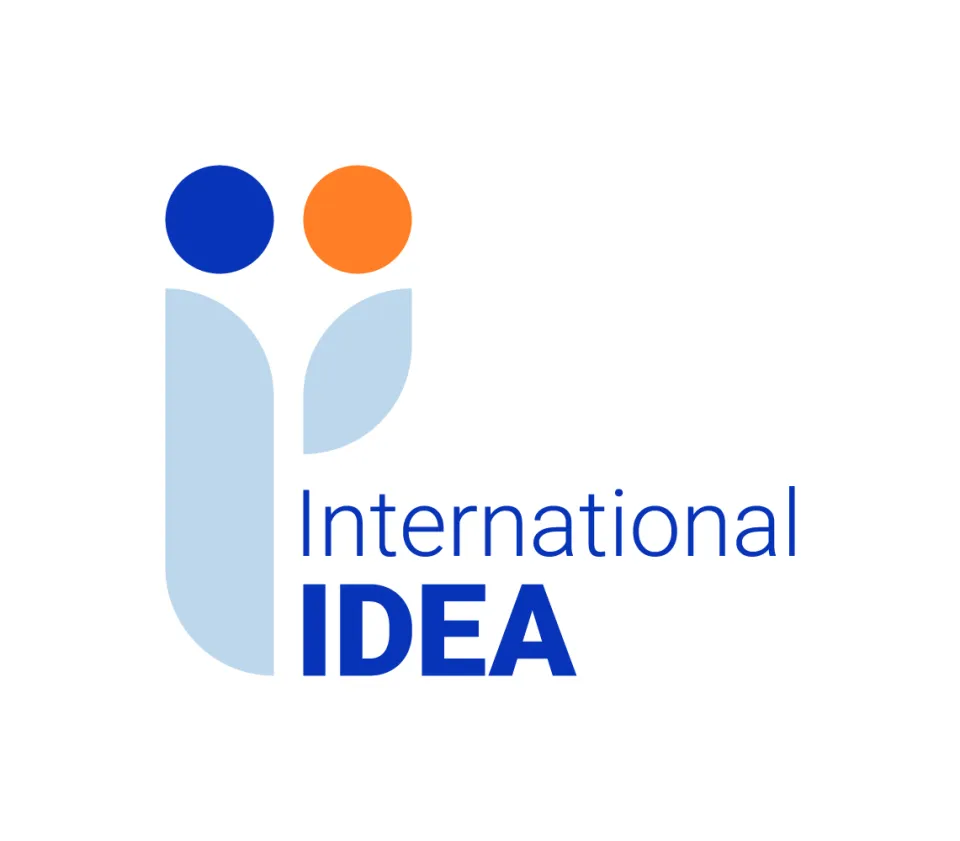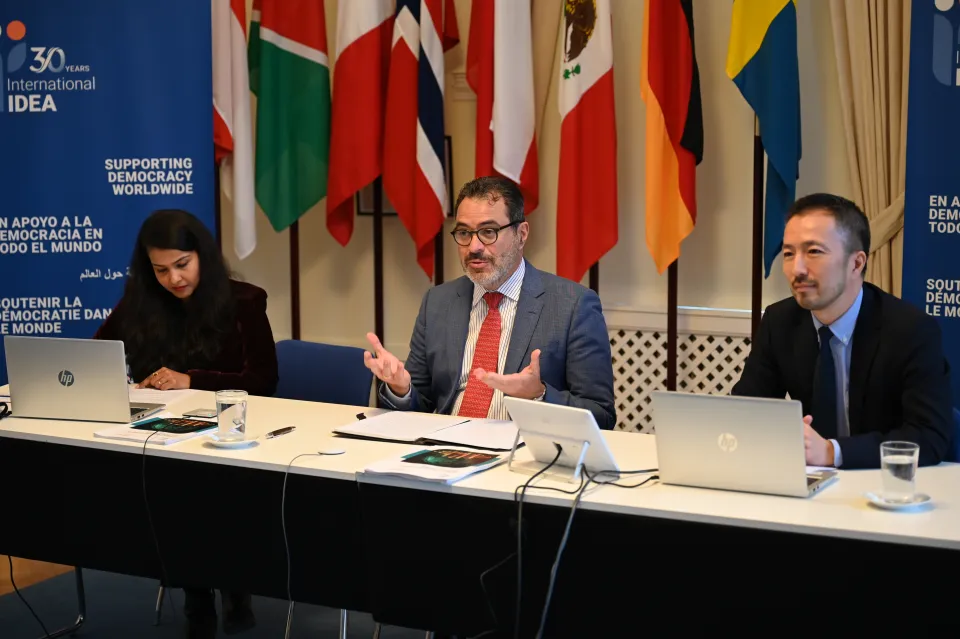Could a new solidarity between generations address the inter-generational democratic deficit?

he Office of International IDEA to the European Union organized a Roundtable on, “The Inter-generational Dialogue for Democracy”, which took place at the Mission of Canada to the EU in Brussels on Tuesday, 31 May 2016. Emine Bozkurt, Member of International IDEA’s Board of Advisors, moderated the event, Tom Vandenkendelaere, Member of the European Parliament (EPP-Belgium), delivered opening remarks, and Tomaž Deželan of the University of Ljubljana, lead the discussions with a presentation of a draft paper on subject.
The participants examined how to enhance young and elder people’s participation and representation in political life in Europe, and discussed innovative proposals to maximize their contribution to the building of sustainable democratic societies.
Globally, one of the greatest challenges to democracy is how to address the expectations and needs of all citizens, and preserve their freedom and dignity while securing a sustainable future for generations to come. In addressing the inter-generational democracy deficit, participants agreed that there is no better time than the present to build a new solidarity between generations. Based on the draft paper of Tomaž Deželan, practical measures were discussed and proposed to allow for greater cooperation and the fostering of an inter-generational solidarity, built on dialogue, understanding and the essential participation by citizens of all ages in the making of decisions that concern them.
Acknowledging that, “Democracy is also a state of inter-generational equity”, the Roundtable agreed that for democracy to foster, inclusive participation and meaningful representation are key requisites. A democracy should bring sustainable benefits to everyone, it should be people-centered and leaving no one behind.
Tomaž Deželan articulated the following three strategies to promote and introduce the inter-generational dialogue for democratically substantive and generationally just political communities:
- Development of infrastructures to support inter-generational activities;
- Establishment and development of inter-generational linkages through governance (local, national, and supranational); and
- Promotion of the inter-generational vision.
-
Highlighting the importance for countries in Europe to redefine citizen education, the Roundtable concluded by agreeing that there is not an inter-generational conflict, but rather inter-generational apathy. This could also be described as an inter-generational conflict of interest.
The Office of International IDEA to the European Union will develop a set of policy recommendations on the modalities for an inter-generational dialogue for democracy by the end of 2016.



